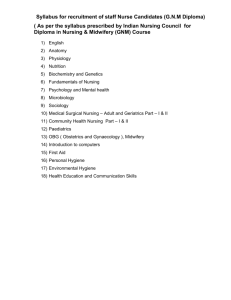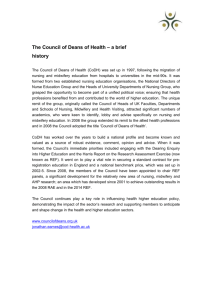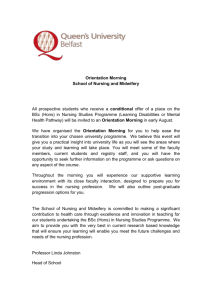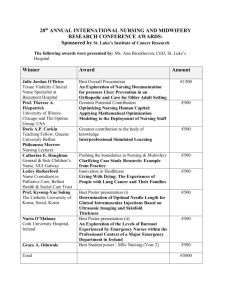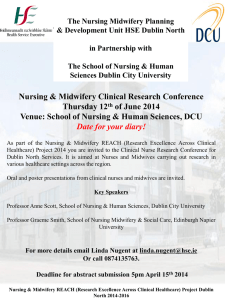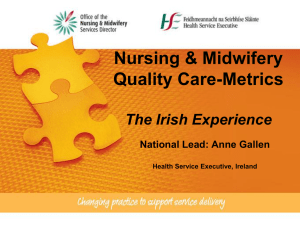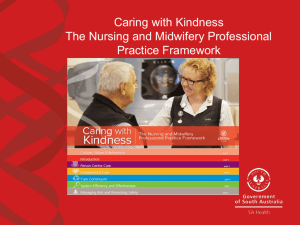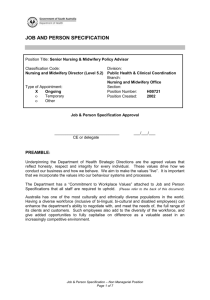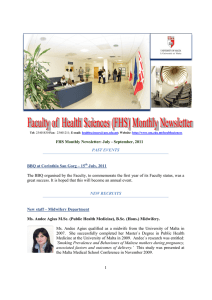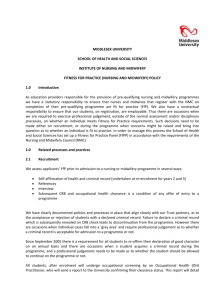Title: Improving student assessment program through improving the
advertisement
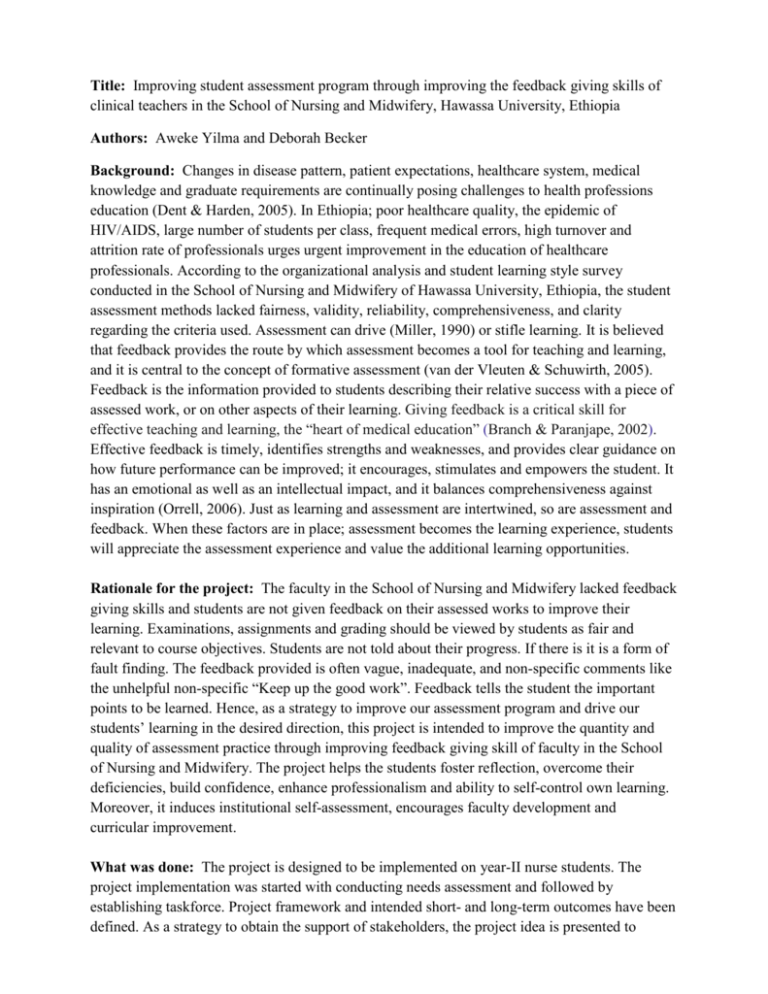
Title: Improving student assessment program through improving the feedback giving skills of clinical teachers in the School of Nursing and Midwifery, Hawassa University, Ethiopia Authors: Aweke Yilma and Deborah Becker Background: Changes in disease pattern, patient expectations, healthcare system, medical knowledge and graduate requirements are continually posing challenges to health professions education (Dent & Harden, 2005). In Ethiopia; poor healthcare quality, the epidemic of HIV/AIDS, large number of students per class, frequent medical errors, high turnover and attrition rate of professionals urges urgent improvement in the education of healthcare professionals. According to the organizational analysis and student learning style survey conducted in the School of Nursing and Midwifery of Hawassa University, Ethiopia, the student assessment methods lacked fairness, validity, reliability, comprehensiveness, and clarity regarding the criteria used. Assessment can drive (Miller, 1990) or stifle learning. It is believed that feedback provides the route by which assessment becomes a tool for teaching and learning, and it is central to the concept of formative assessment (van der Vleuten & Schuwirth, 2005). Feedback is the information provided to students describing their relative success with a piece of assessed work, or on other aspects of their learning. Giving feedback is a critical skill for effective teaching and learning, the “heart of medical education” (Branch & Paranjape, 2002). Effective feedback is timely, identifies strengths and weaknesses, and provides clear guidance on how future performance can be improved; it encourages, stimulates and empowers the student. It has an emotional as well as an intellectual impact, and it balances comprehensiveness against inspiration (Orrell, 2006). Just as learning and assessment are intertwined, so are assessment and feedback. When these factors are in place; assessment becomes the learning experience, students will appreciate the assessment experience and value the additional learning opportunities. Rationale for the project: The faculty in the School of Nursing and Midwifery lacked feedback giving skills and students are not given feedback on their assessed works to improve their learning. Examinations, assignments and grading should be viewed by students as fair and relevant to course objectives. Students are not told about their progress. If there is it is a form of fault finding. The feedback provided is often vague, inadequate, and non-specific comments like the unhelpful non-specific “Keep up the good work”. Feedback tells the student the important points to be learned. Hence, as a strategy to improve our assessment program and drive our students’ learning in the desired direction, this project is intended to improve the quantity and quality of assessment practice through improving feedback giving skill of faculty in the School of Nursing and Midwifery. The project helps the students foster reflection, overcome their deficiencies, build confidence, enhance professionalism and ability to self-control own learning. Moreover, it induces institutional self-assessment, encourages faculty development and curricular improvement. What was done: The project is designed to be implemented on year-II nurse students. The project implementation was started with conducting needs assessment and followed by establishing taskforce. Project framework and intended short- and long-term outcomes have been defined. As a strategy to obtain the support of stakeholders, the project idea is presented to college dean, faculty in the School and is endorsed by the academic commission of the school. Project monitoring and evaluation tool has been developed. As faculty are the direct implementers of the project, they have been involved and special taskforce comprising module team leaders, school head and unit coordinators have been established. Training on assessment and feedback giving has been given to faculty members working in the skills laboratory of the School of Nursing and Midwifery. Fundamental of Nursing Skills course has been selected for the pilot testing. The principal investigator of this project has been involved in delivering the course and this has facilitated in getting the faculty on board facilitating the smooth flow of the project implementation. Separate FGD session has been held with students and the teachers in separate session. Results: 20 faculty members have been trained for 3 days on assessment and feedback giving skills. Two FAIMER fellows and the quality assurance office have been involved in delivering the training. Preliminary pre-test has been provided to the faculty trainees to assess their underlying knowledge in assessment and feedback giving. Among the trained 20 faculty members, 5 faculty members were selected for the pilot-testing. The pilot-testing is implemented on selected 20 undergraduate second year nursing students taking the Fundamental of Nursing clinical skills practical course. Most students reported trusting teachers and establishment of good teacher-student relationships. One student reported a sort of intimidation and “harsh speech” from a teacher when receiving feedback. The teachers reported making an interesting discussion with students. They found students very interested during the feedback session. However, the teachers felt that the feedback giving session is very demanding and time consuming. Some have asked for compensation for the “additional” work of feedback giving. Some reported it to be part and parcel of their teaching duty but complained of doing it in a large student context. Other sister schools have also discussed on how to provide the training for their faculty members. Lessons learned: Individual feedback in large number of students is challenging. Group feedback can be tried, though not effective like individual feedback giving. Implementing any kind of new project has its inherent own risks and benefits. Especially when competing breakthrough policies happen, they distract stakeholders’ (faculty, administrators, deans and students) attention and engagement. Faculty needs to be compensated and motivated for the additional work they provide amid the less favorable working environment. Correspondence: Aweke Yilma, MSc/MHPE, MScPM, BScN, RN, School of Nursing and Midwifery, College of Medicine and Health Sciences, Hawassa University, Hawassa, Ethiopia. E-mail: faimer1214@gmail.com.
